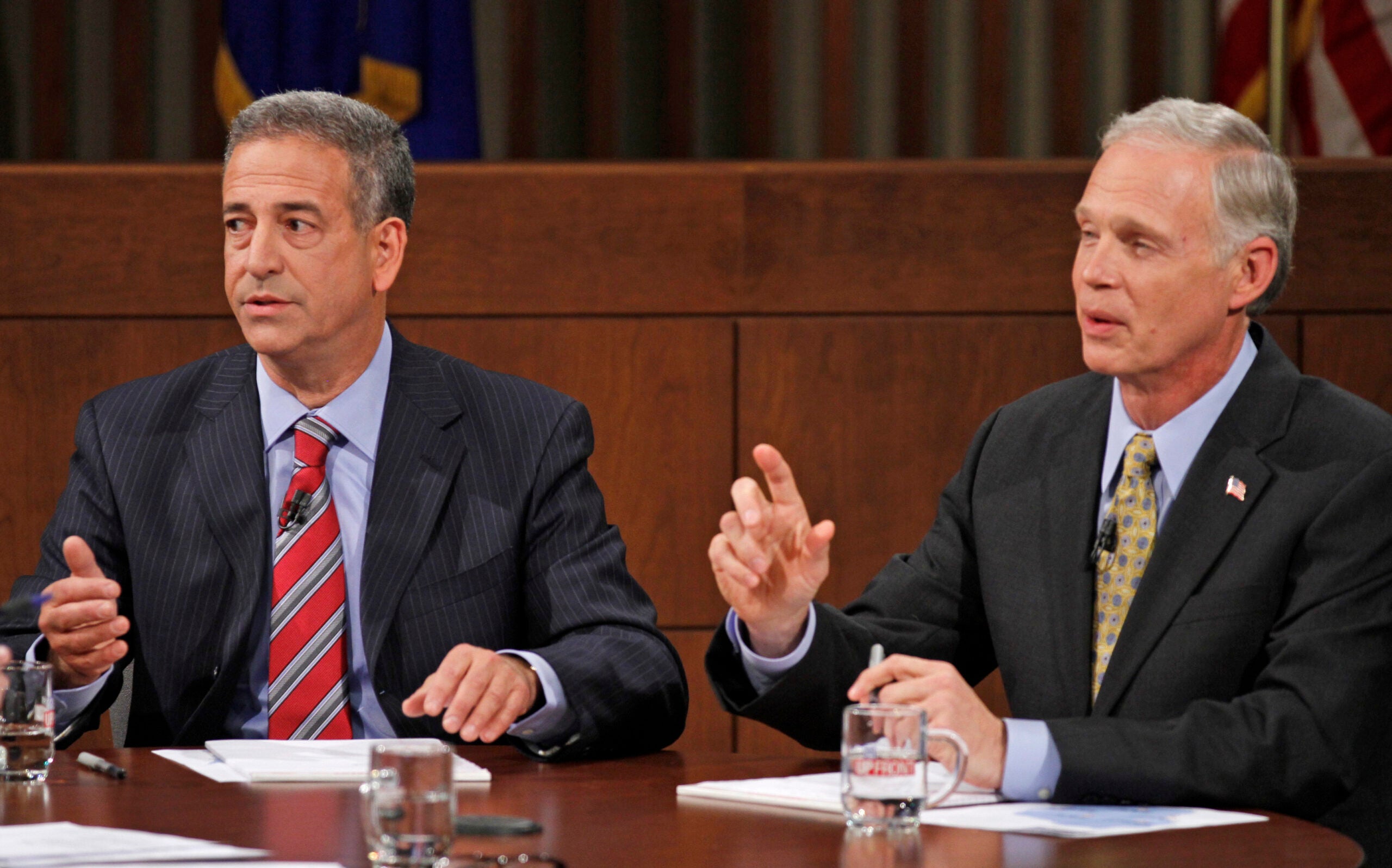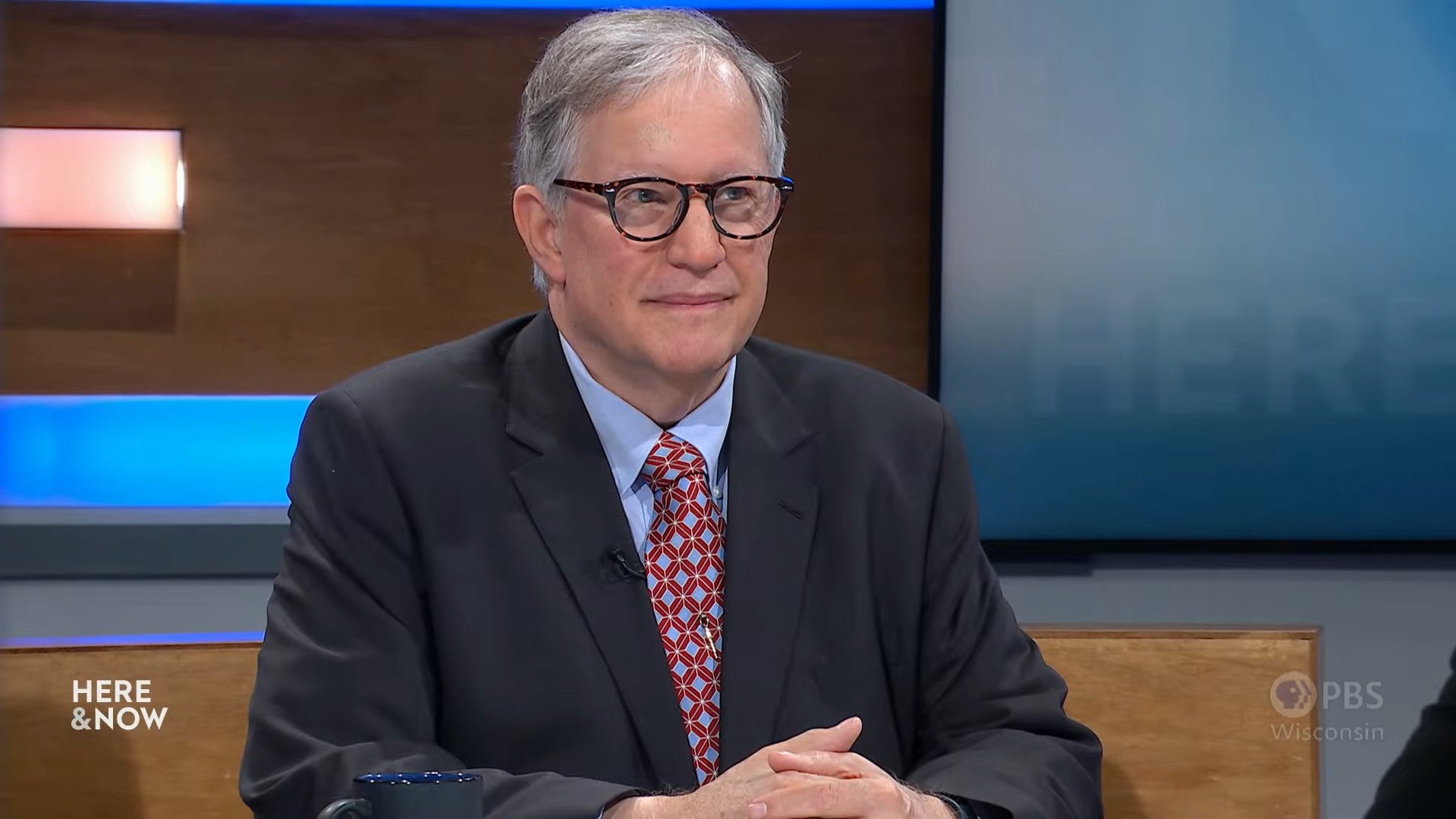The races for president and U.S. Senate have tightened in Wisconsin, but Democrats continue to lead both contests according to the latest poll from Marquette University Law School.
Among self-identified likely voters, the poll showed Democrat Hillary Clinton leading Republican Donald Trump 45 percent to 42 percent in the race for president. That 3-point margin is a far cry from Marquette’s early August survey where Clinton led Trump by 15 percentage points.
In the race for U.S. Senate, Democrat Russ Feingold led Republican incumbent Ron Johnson by a similarly tight margin of 48 percent to 45 percent among likely voters. Feingold led Johnson by 11 percentage points in early August.
News with a little more humanity
WPR’s “Wisconsin Today” newsletter keeps you connected to the state you love without feeling overwhelmed. No paywall. No agenda. No corporate filter.
The margins for both races were also close among registered voters, with Clinton up by 5 points and Feingold by 4.
The survey sample included more people who said they leaned Republican compared to recent Marquette polls. It also came a month after the national political conventions, which gave Clinton a noticeable “bounce” in the earlier polls both here and nationally. Marquette pollster Charles Franklin said that convention bounce is now clearly gone.
“So whereas early August was the very height of the post-convention bounce for Clinton and a very bad week for Trump, this week we’ve seen that convention bounce go away and a week that has been about a wash for Trump,” he said.
Franklin said more Republican-leaning voters are declaring for Trump, while Clinton has fallen off a bit on questions about honesty, being qualified for office, and caring about voters.
“It’s not much of a surprise that we would see closer races, more competition,” Franklin said.
Also notable in Marquette’s latest survey was how many Wisconsin residents view both Clinton and Trump negatively. Sixty-three percent of registered voters said they had unfavorable views of Trump and 58 percent said they had unfavorable views of Clinton. Along those same lines, just 26 percent of registered voters said “honest” describes Clinton while just 31 percent said it described Trump.
A fair number of voters also appear to be considering other contenders or remaining undecided.
In a four-way race, Libertarian Gary Johnson polled at 11 percent and Green Party candidate Jill Stein had support of 7 percent.
Franklin said that, typically, many of the so-called third-party voters would switch to the Democrat or Republican closer to the November election.
“But this is a hard year to handicap on that because both of the leading major-party candidates have such high disapproval numbers, or unfavorable numbers, that do we have confidence that that’s going to happen?,” he said.
About 13 percent of those polled say they’re undecided.
Asked about the poll by reporters in Milwaukee, Feingold said his numbers sounded “pretty good.”
“We’ve been ahead in every poll that’s come out,” Feingold said. “What matters is what happens on Nov. 8 and we feel real good.”
Johnson’s campaign issued a statement saying Feingold had “little to show” for the campaign he’d been running.
The poll included some good news for Gov. Scott Walker, at least relatively speaking. Forty-three percent of those surveyed approved of the job he’s doing compared to 49 percent who disapprove. While it was still a negative rating for the governor, it marked the first time Walker’s disapproval rating had dropped below 50 percent since 2014. Franklin said it was too early to tell whether this was the start of a trend for Walker or just an outlier.
Marquette’s survey results were released on the same day that Monmouth University in New Jersey released a poll showing Clinton leading Trump by five points among likely voters. Monmouth’s survey found Feingold leading Johnson by 13 points.
Marquette surveyed 803 registered voters from Aug. 25-28, which included 650 likely voters. Marquette’s margin of error for likely voters was +/- 5.0 points. Monmouth’s survey was conducted from Aug. 27-30 and included 404 likely voters with a margin of error of +/- 4.9 percent.
Editor’s note: This story has been updated to include reporting by Chuck Quirmbach.
Wisconsin Public Radio, © Copyright 2025, Board of Regents of the University of Wisconsin System and Wisconsin Educational Communications Board.







